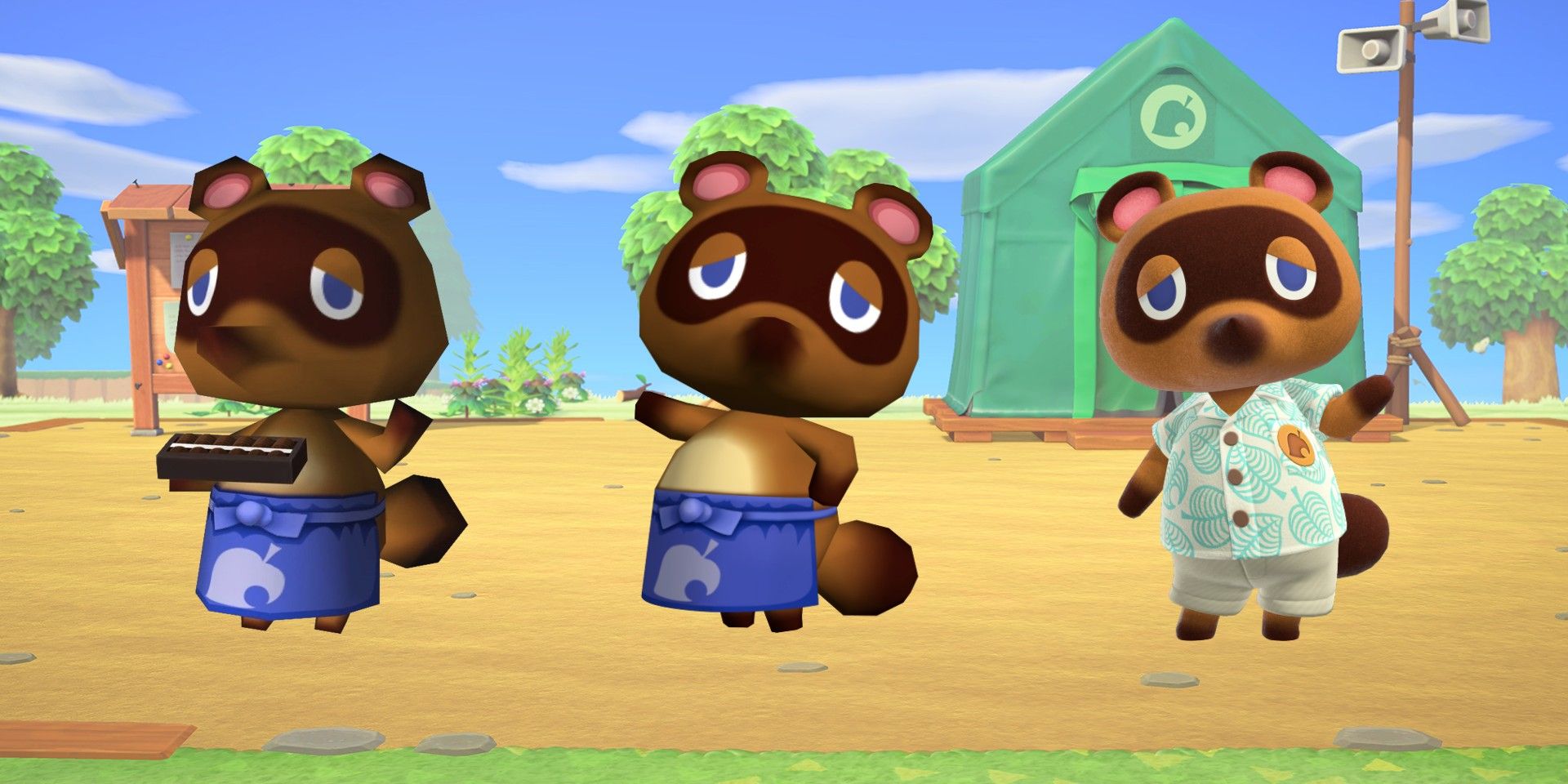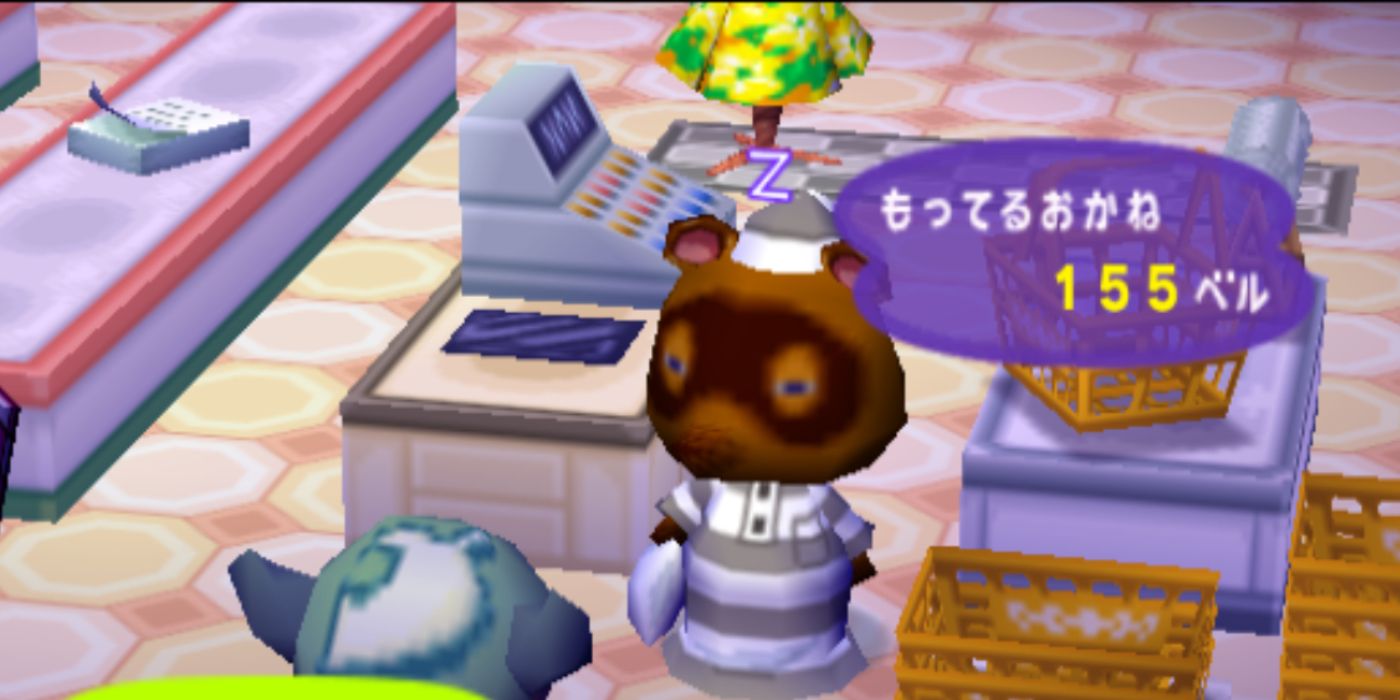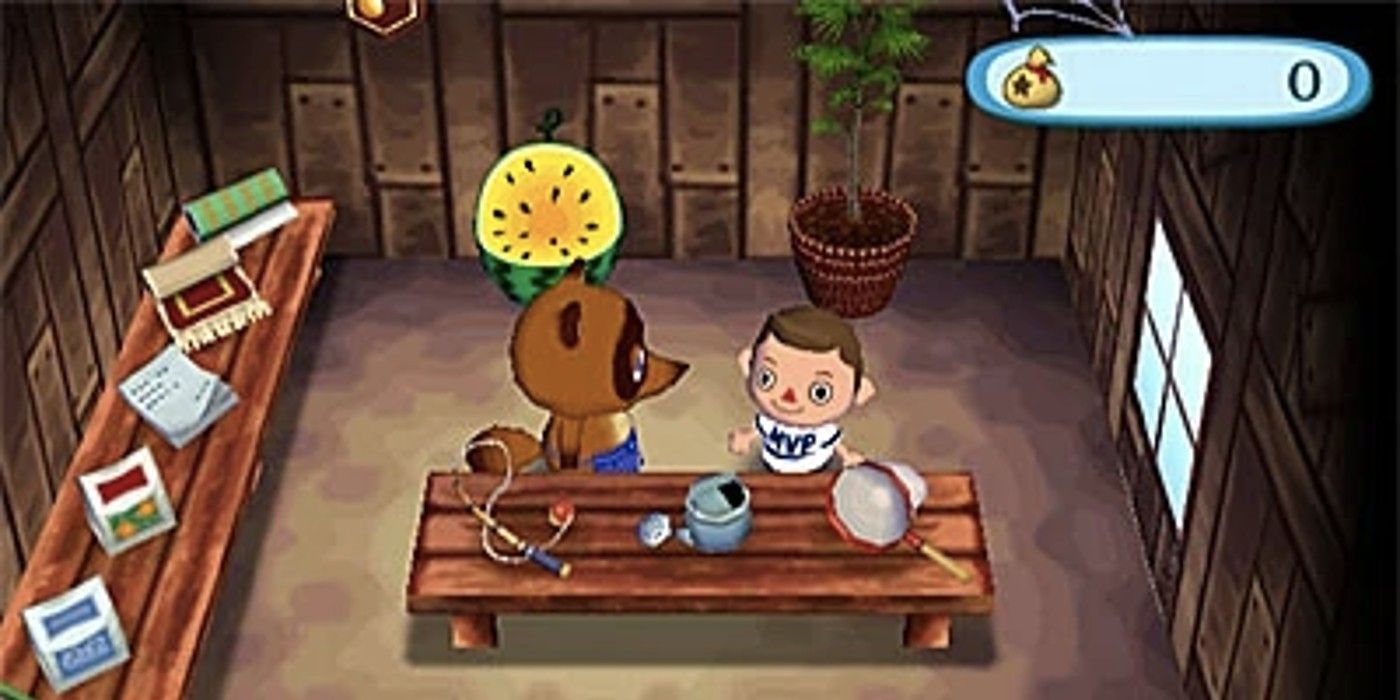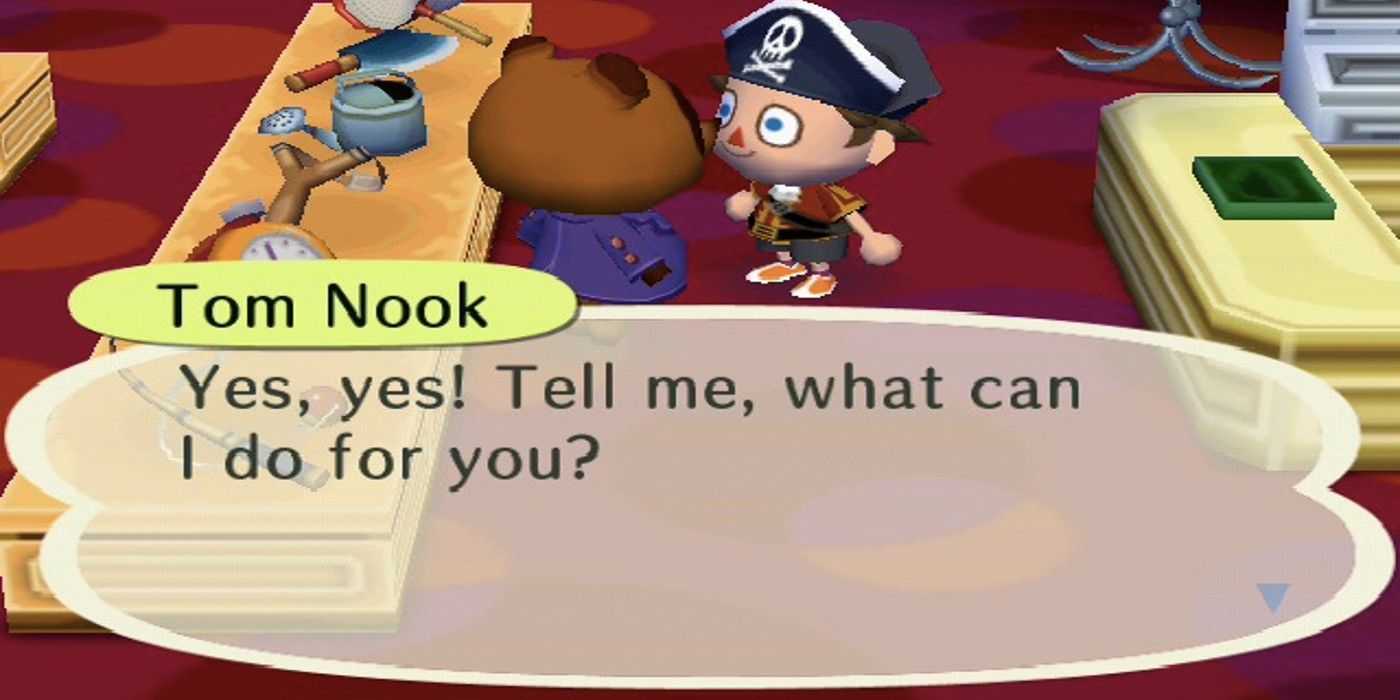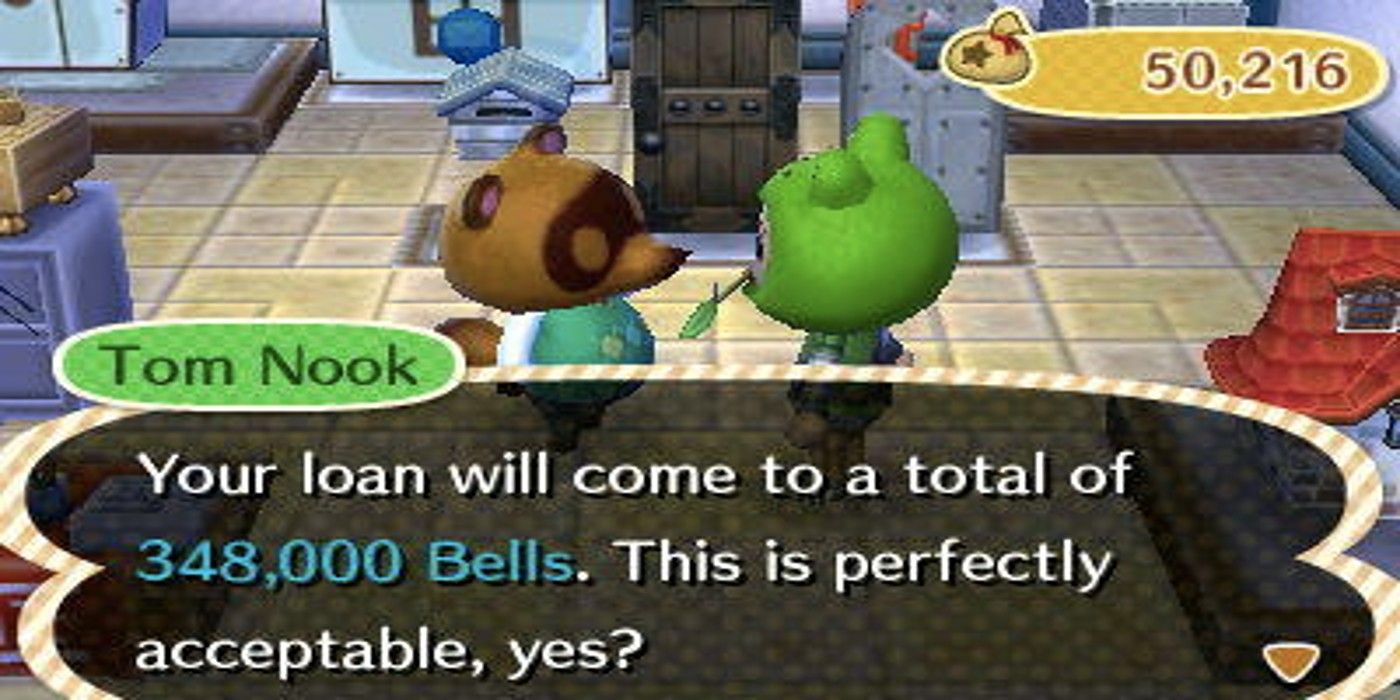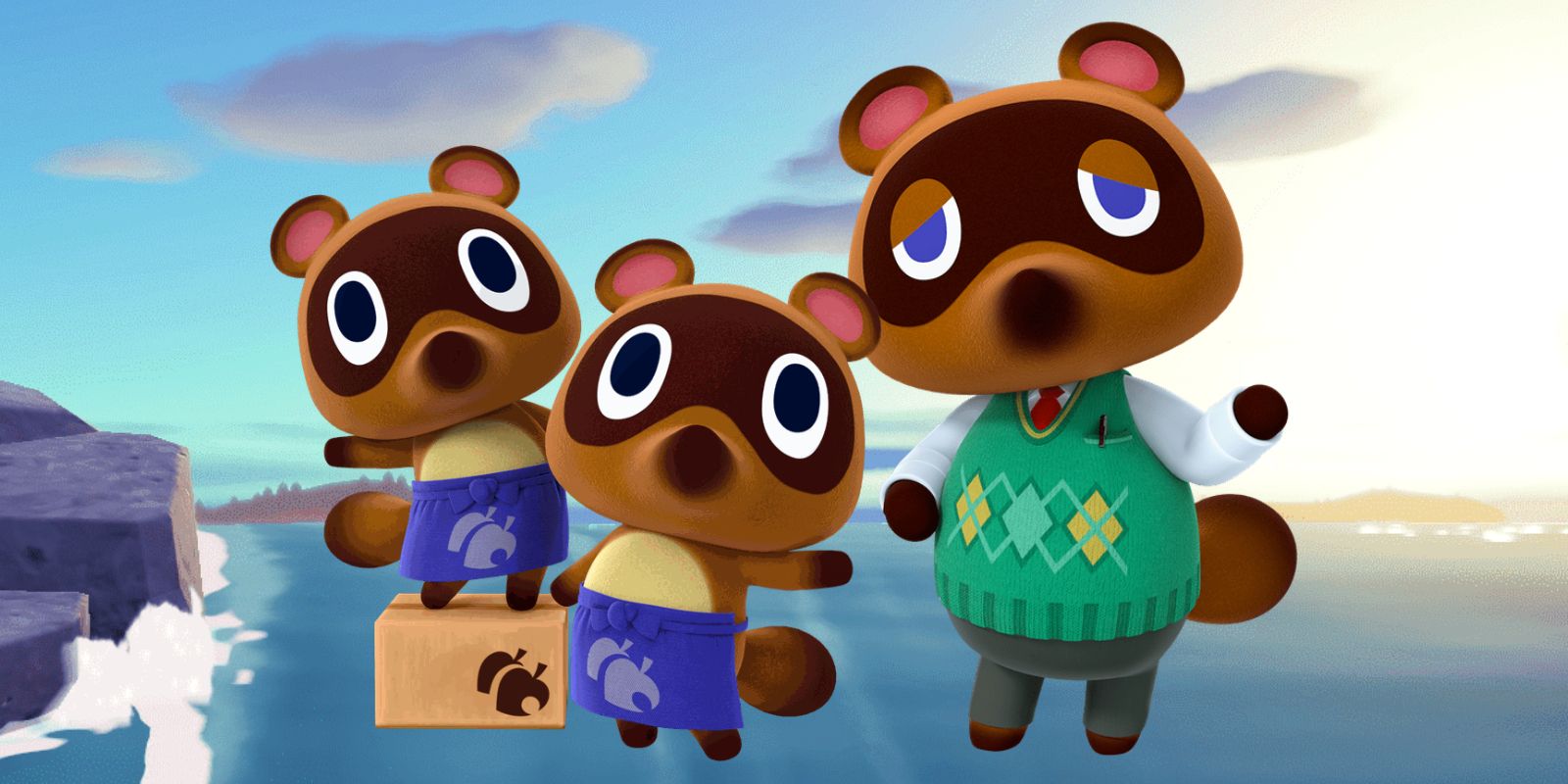Tom Nook is one of the Animal Crossing series' most iconic characters, and has undergone some key changes since his early appearances. He appears in every single release, and is also one of the most polarizing characters - some Animal Crossing players consider Tom Nook to be a greedy, capitalistic monster while others find him to be an altruistic tanuki who provides for the towns in which he resides. Regardless of fans' personal preferences, Tom Nook is an integral part of the long-running simulation series, as he's tied to multiple important in-game mechanics.
Tom Nook goes through many different changes throughout the Animal Crossing series in terms of everything from his appearance and demeanor to the nature of his career. Despite his evolutions, there are a few constants about the roles Nook plays throughout the games. He always has something to do with a player's mortgage and management of their home, and is always at least peripherally involved in the Animal Crossing town store, which can be upgraded.
It's generally agreed upon that the Animal Crossing series has had five mainline entries, but that's really only true in America. The game Doubutsu no Mori - which means "animal forest" in Japanese - was released for the N64 in 2001, originally designed to work with the N64's 64DD peripheral drive in order to utilize its real-world clock, but the fiscal failures of the 64DD led to a vanilla N64 release which lacked several features. From there, an expanded version called Doubutsu no Mori+ released for the GameCube several months later, and the Western port of the game included more details than the new Japanese title due to changes made to help localization. This localized version did so well that it was once again ported back to Japan with a few extra changes and released under the name Doubutsu no Mori e+.
Tom Nook Went Through Subtle Changes In Each Animal Crossing Port
The original Doubutsu no Mori was quite minimal in terms of almost every feature Animal Crossing is known for, including Tom Nook. Notably, Nook's ability to add a second floor and basement to a player's home was absent, and store upgrades took 1 day instead of 2. He was also the only vendor, as the game had no Able Sisters shop.
In Doubutsu no Mori+ and its Westernized version, Nook takes on a much larger role, and offered some services and events not seen in other games. For example, Animal Crossing for the Gamecube is the only title where players can enter what are called passwords with Tom Nook - special codes associated with every single item in the game that players could use to trade or as cheat codes for free items - and clothing was available for purchase in-store. Nook also held a special lottery where players could win fully-playable NES games - a feature from the originals many wish would return to Animal Crossing - and would build a statue of the player after their loan was fully repaid.
Although the Japanese port of the Western version Doubutsu no Mori e+ did not make many changes to Tom Nook, it did add two intriguing features never seen again: players could access the store after closing by hitting the door with a shovel or axe - where Tom Nook would appear in his pajamas - and could ask Nook about building exterior decorations like windmills around town. Tom Nook's overall demeanor in this title is much more authoritative than in later Animal Crossing games, particularly when players are forced to work with him to pay off their loan at the beginning of the game. He strictly demands a uniform be worn, and frequently chastises the player for their work speed.
Tom Nook Is An Introspective Role Model In Animal Crossing: Wild World
Many changes were made to Tom Nook's character in Animal Crossing: Wild World, particularly his backstory. Wild World introduced the concept of "episodes," which were special, time-locked conversations players could have with NPCs that revealed more about the character. Although still fairly professional in-game, Nook reveals himself to be much more introspective in this title, frequently reflecting on his regrets in business and in life to the player. Players can also obtain his picture in this game if they give him a safe, a feature typically reserved for villagers, demonstrating a more personal connection with the player. He also seems to see himself as more of a role model, offering the player business advice and talking about how he's mentored Timmy and Tommy.
Business-wise, Nook's store in Wild World introduces the Tom Nook Point System, which players would earn each time they made a purchase. As players accumulated points they would earn special store model decorations and receive incrementally larger store discounts, a feature replaced with sales in more recent Animal Crossing titles. Nook no longer sells clothing, and has expanded his store even more to incorporate Shampoodle - home to poodle hairdresser Harriet - into the building.
Tom Nook Returns To His Business Roots In Animal Crossing: City Folk
With the release of Animal Crossing: City Folk, Nook lost some of his softer qualities and has mostly returned to his somewhat stiff, professional demeanor. Nook now has to compete with the fancier retailer GracieGrace located in the game's titular city and must put his nose to the grindstone. Players can no longer acquire his photo or learn about his past, with the tanuki having much stronger boundaries in this title than the last.
The Tom Nook Points system remains in City Folk, and much like in Animal Crossing: New Horizons players can earn points simply by visiting the machine each day. Exterior rewards for full loan repayment make a return in this title - after an Animal Crossing player completes their payments, Tom Nook will build a flag outside their home which can be decorated with any pattern. City Folk is the only game in which players can change the store's design after its final upgrade to Nookington's. Tom will ask the player if they feel customer service can be improved in any way, and depending on their response the store can revert to any of its past incarnations.
Tom Nook Has Moved On To Real Estate In Animal Crossing: New Leaf
Tom Nook has stepped away from having a direct role in the day-to-day dealings of the town store in Animal Crossing: New Leaf, instead opening a real estate company with former otter and insurance salesman Lyle called Nook Homes. Although the store is still run by his adopted employees Timmy and Tommy and it's implied Nook still has stake in the store, his main focus is now mortgages and exterior home decor, and the Tom Nook Points mechanic is no more. Until this point, house exterior modifications in Animal Crossing were limited to changes in roof color - with Nook Homes, players can purchase things like new doors, mailboxes, and fences.
The dynamic between Tom Nook and the player is completely different in Animal Crossing: New Leaf due to the fact that the player has assumed the role of mayor. Nook treats the player with much greater respect, and no longer forces them to work for him at the beginning of the game. Players also now have full authority over where they can place their home, instead of being forced into a certain set of areas.
Tom Nook Takes His Most Ambitious Leap In Animal Crossing: New Horizons
Tom Nook and his Nooklings have taken the most ambitious leap yet business-wise in Animal Crossing: New Horizons, starting a travel agency called Nook Inc. and relocating his family to a deserted island to pursue his dream. Tom introduces the Nook Miles system in Animal Crossing: New Horizons - a sort of evolved Tom Nook Points system used much more broadly as a secondary currency - and offers services similar to that of Nook Homes but with much more expanded exterior options. He's become somewhat of a desk jockey in the latest installment, spending most of his time in Town Hall.
Now clad in relaxed tropical attire, Tom Nook has returned to his more social roots in New Horizons, at least to an extent. The building of the island from the ground up is an arduous task that Nook needs help from the player to accomplish - even though Nook still controls loans and the town store, there is a much more even power dynamic. The player is deemed Island Representative and is instrumental to the development of the new island in Animal Crossing. Nook addresses the player somewhat less formally, and even shares some personal anecdotes in the beginning of the game. There is a large sense of community in the game, because unlike other Animal Crossing titles the island is truly being built from the ground up, with the player helping Nook as much as he helps them.

